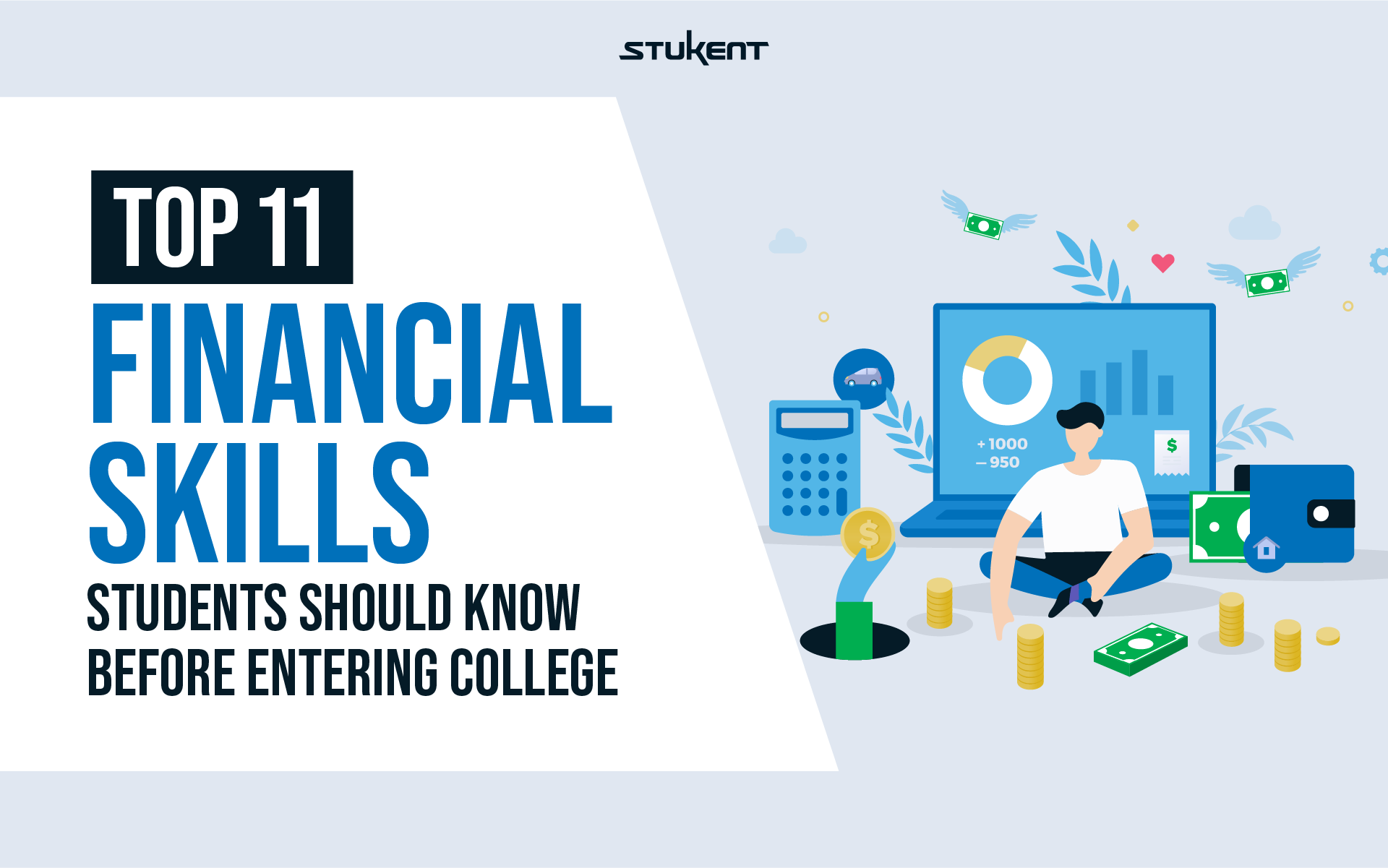What is one of the top financial skills students should know before entering college?
To help college-bound students manage their finances during college, we asked financial coaches and career counselors this question for their best recommendations. From loan interest calculation to income and expense tracking to reading a balance sheet, there are several financial skills that students need to develop before entering college to use in their college years and beyond.
Here are 11 top financial skills students should know before entering college:
- Loan Interest Calculation
- Managing Credit Cards and Building Credit
- Cutting Back On Unnecessary Expenses
- Knowing How Education Influences Your Value
- Budgeting and Balancing the Books
- Income and Expense Tracking
- Making Sound Investments
- The Art of Saving
- Leveraging Appropriate Technology
- Financial Planning
- Reading a Balance Sheet
Loan Interest Calculation
“Calculating loan interest is one of the most critical financial skills all incoming college freshmen should learn. One major flaw with the current university system is that many students do not get a comprehensive course on loan payments and interest until they are graduating seniors, if at all. By understanding these terms upon entering college, students can have a more accurate view of the financial commitment they are making and can make more calculated spending decisions throughout their years of college or seek out further funding.”
Tasia Duske, Museum Hack
Managing Credit Cards and Building Credit
“One of the top financial skills that all students should know before entering college is how to manage credit cards and build solid credit. Credit cards can be a great tool in the college world but students should always be diligent when using them. They’re very helpful when you need some quick cash to cover urgent and vital necessities; however, you must learn to manage debt from these cards.
Always remember that credit cards aren’t your extra income and relying on them to fund your day-to-day expenses will lead you to a debt trap! Having a good credit score as you progress in life is vital as your future needs could be a new car, new house, and other pricey expenses. Managing credit cards diligently and building credit can be quite a new concept to young students, but it is vital to be able to properly manage your cards and credit score in general for your future after college.”
Chris Hunter, ServiceTitan
Cutting Back On Unnecessary Expenses
“Every student needs to keep in mind the skill of cutting back on unneeded spending. Everyone is aware of the need for budgeting, but few people truly follow through. Most people spend a lot of money on items they don’t actually need in their daily lives. Anyone who has the ability to control their desires and exercise self-discipline can do anything. The majority of our financial problems are caused by overspending. Careful spending must be done, and this can only be done with the help of a well-thought-out budget plan. A budget plan specifies in great detail how much and on what you should spend your money. This can assist you in controlling your cravings and saving a significant amount every month.”
Timothy Woods, Carnivore Style
Knowing How Education Influences Your Value
“A financial skill that proves crucial throughout life is knowing how to calculate one’s own worth, and there’s no better time to learn the ropes of how to do this than when you’re a student entering college. As a youngster who is only just beginning to embark on laying the foundation for their career path, it is important for a college student to determine just how much they want their financial worth to be. This will help them understand the choices they’d have to make on the educational front as well as the effort they would need to put in to fulfill their financial goals.”
Riley Beam, Douglas R. Beam, P.A.
Budgeting and Balancing the Books
“For many young people, moving to college will be the first time they have had to look after themselves properly, and one of the most basic skills they will need to have learned is how to survive financially. Apart from the basic necessities of life such as accommodation, food, clothing, fuel bills, etc, they will need to learn how to budget for college materials and books, entertainment, transport, and any number of other expenses. All this will need to be done within their income limits, and for many, this can be a challenge. However, once the student has mastered the art of balancing their books, it is a skill that is never forgotten and will provide essential experience for later in life when even more responsibilities arise.”
Morgan Taylor, Sourcery
Income and Expense Tracking
“One of the most important financial skills a student should have before college is income and expense tracking. Recording what you make versus what you spend is crucial to understanding the basics of economics and avoiding unnecessary debt. This can be done through a budgeting app or the old-fashioned way with pen and paper or a monthly spreadsheet. Write everything down and you will stay on top of your budget, which in turn will allow more time to focus on your studies.”
Kevin Callahan, Flatline Van Co.
Making Sound Investments
“One of the top financial skills students should know before entering college is to learn how to start investing. This will allow them to begin building their wealth and preparing for their future. Many students enter college without any knowledge of investing, which can lead to financial problems down the road. Learning how to start investing early on will help students avoid these problems and set themselves up for success. It’s as simple as downloading investing apps, signing up for investment newsletters, or taking an online course. By doing these things, students can develop the financial skills they need to succeed in college and beyond.”
Brian Meiggs, My Millennial Guide
The Art of Saving
“During their college years, the majority of students begin to earn money. While you’re earning, saving for the future is also extremely important. The reason why it is important to learn the art of saving before joining college? No matter if you’re only saving a small number of earnings, say 10% or 20%, it will pay you in the long run and you’ll be thankful for it. College students have to deal with a lot, such as fees, transportation, and extra things. And in between, they might have trips with friends, for which asking your parents for money won’t be a good thing to do. At that time, this saved money will pay you to fulfill your small dreams. Make sure you’re keeping that in a bank and find a good investment option where it gives you interest as well.”
Anthony King, Transport Executive
Leveraging Appropriate Technology
“While getting a head start on learning financial skills is important, I would encourage incoming students to also focus time on learning to navigate the prominent analytical tools and programs. I think that students will find that learning to use Microsoft Excel (and its various analytic add-ons) or Tableau, for example, will not only complement their foundational skills but will also set them apart from their peers as they enter the workforce.”
Tyren Thompson, Zoom
Financial Planning
“Since tons of students got caught up in student debts, financial planning should be taken more seriously. Start with spending less than you earn and save for the future. It begins with a simple spreadsheet, or you could even make it more enjoyable with apps like Mint. Think of your life after college: do you think it would be interesting to spend all day in side hustles to pay unnecessary debts? Absolutely no.”
Abdulrahman Henedy, Financeive
Reading a Balance Sheet
“As a finance student entering college, the minimum expectation is to know how to read a balance sheet and prepare one. It’s really important to know the different fields involved in a typical balance sheet and how calculations are happening. Reading balance sheets helps students in analyzing companies in a better way and can lead to them becoming better traders.”
Avinash Hiremath, Trempplin
To get FREE instructor access to Stukent’s courseware and groundbreaking simulations, schedule a demo with a course consultant today.






